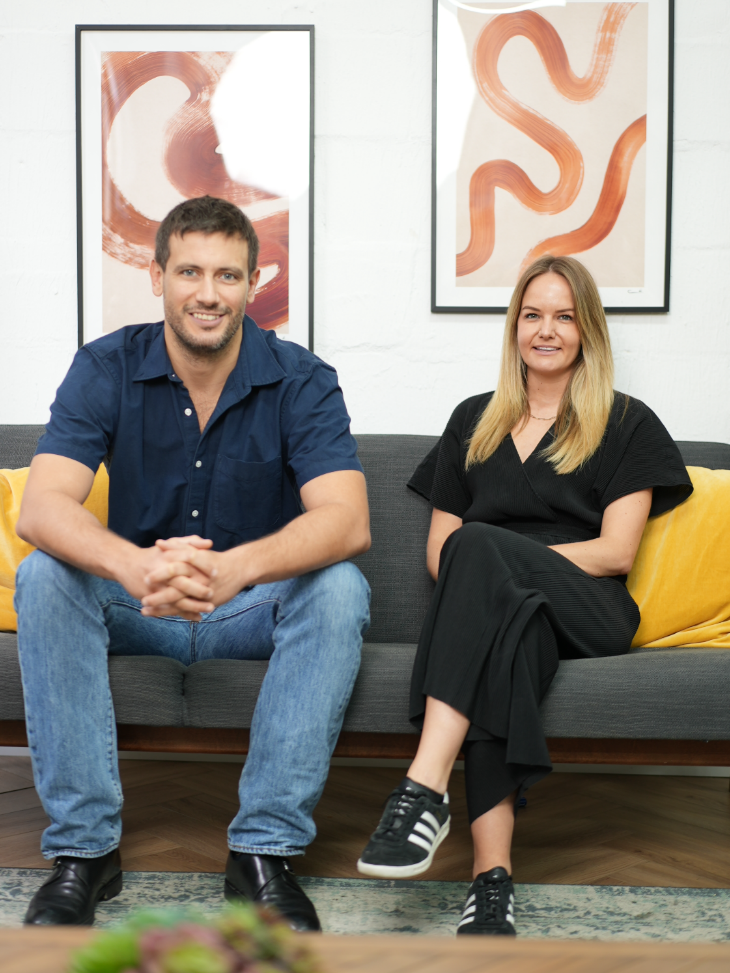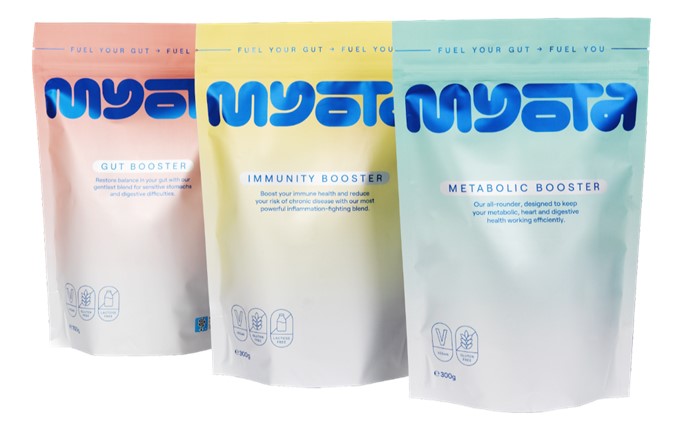
WHAT HEALTHCARE TRENDS DO YOU BELIEVE WILL BE EVOLVING IN THE NEXT FIVE YEARS?
We have already seen that the recent COVID pandemic has heightened people’s awareness for the importance of maintaining a strong baseline of health and focusing on disease prevention. It is likely that in the next five years, increased focus from public health systems and individual customers/patients will be brought to prevention rather than treatment, alongside a more pronounced emphasis on solutions promoting health rather than treating disease. This is important in multiple contexts, Thomas says, but one of the most likely candidates for strong innovation in the next 5 years would be alternatives to existing antibiotics – both in the form of new antibiotic candidates but also in other strategies for boosting the immune system to fight bacterial infection without raising the risk for (i) multiple antibiotic resistance and (ii) other health conditions due to antibiotics’ destructive impact on the gut microbiome. Additionally, we expect a renewed interest in the role of nutrition in healthcare as a way to improve health outcomes, as awareness around the gut microbiome and its relationship with diet is strongly on the rise in the general population.
WHY A FIBRE / MICROBIOME COMPANY?
During Thomas’ research as a postdoc at the MIT Microbiome Center, he was working on fibre as a way of modulating the composition and metabolic output of the human gut microbiome. It was by then well-understood in the microbiome field that fibre was the single biggest dietary modulator of the microbiome. However, while doing this research, he found large differences between people’s microbiomes in their ability to break down specific fibres into health-promoting Short Chain Fatty Acids (SCFAs). Gaining better insight into this variability between individuals opened an opportunity to create truly clinically effective fibre blends targeting the microbiome and designed to work across different microbiome compositions. By conducting clinical trials, it would then become possible to obtain powerful health claims that truly capture the potential of fibres in modulating human health, opening new possibilities for impact on chronic disease through precision nutrition. This was a wonderful opportunity to exploit the power of the microbiome in a lightweight regulatory manner (i.e. through dietary compounds rather than drugs) and move the needle in a meaningful way on chronic disease treatment and prevention. Kat highlights here that whilst lessening the burden on the healthcare system, fibre-based interventions also enable people to be treated in a more stress-free environment, i.e. from the comfort of their own home.
WHY A FOODTECH APPROACH TO CONSUMING MORE FIBRES? AND WHY YOUR APPROACH COMPARED TO OTHER FIBRE COMPANIES?
Eating more fibre is difficult and often involves very large changes to one’s diet and/or lifestyle. While dietary fibre can be found in traditional foods and ingredients like fruits, vegetables and grains, our understanding of the gut microbiome’s role in processing fibre has shown that many of the health benefits of fibre come from the Short Chain Fatty Acids produced by it. The problem with everyone having a different microbiome (and different abilities to break down the same fibres) is that in order to truly leverage the benefits of fibre, we need fibre blends that are well fermented across different microbiome make-ups. The opportunity lies in deploying cutting edge microbiome science and food technology to design such fibre blends.
From an ordinary modern diet, it is very difficult to obtain such a variety of fibres. The solution must therefore also be convenient and low burden for the customer. Our approach has been to start with fibre blends that are in pure powder form which can be combined with whatever meal someone is already having, thus removing the need for a major dietary change. In addition, these blends integrate well into foods, so they form a critical building block for functional foods with significant health benefits. In order to promote these health benefits, it is necessary to pursue health claims through rigorous clinical trials. Our approach as a company has been to (i) design these blends with the foundational microbiome science in mind and (ii) test their clinical efficacy in clinical trials with the ultimate aim of obtaining a functional ingredient that carries powerful health claims.
WHAT APPLICATIONS DO MYOTA’ FIBRES HAVE IN THE FOOD INDUSTRY?
Myota fibres cook very well. The food industry already uses dietary fibre as a filler, so integrating fibre blends into a food product is not a stretch of the imagination by any means. The true benefit to the food industry, however, is for the resulting food product to carry health claims which come from Myota’s fibre blends. There are many potential applications, but we have focused on baked products, fibre bars and ready-to-drink beverages, which we have already prototyped and are pursuing in conversations with potential partners.
WHAT ADVICE WOULD YOU GIVE TO A FOODTECH STARTUP FOUNDER TODAY?
One of the biggest movements we are seeing in the FoodTech space is a strong emphasis on sustainability and disease prevention moving forward. Being a founder in this space means staying close to these principles, Thomas says. This is sometimes difficult because it involves a rigorous – and sometimes ruthless – prioritization to ensure that the products you are developing are truly addressing the negative economic externalities and nutritional deficiencies in question. Sometimes, not cutting corners here means breaking new ground in terms of business models or market segments, creating awareness where it is lacking, or having to charge a higher price than existing solutions. Ultimately, the solutions that will have the biggest impact will be those that truly address these pain points even if it means swimming against the current in the early stages. Therefore, our advice to FoodTech founders today would be to make sure you are addressing a real problem, and if you are, to be ruthless in prioritizing the value add you are bringing rather than trying to fit in with existing trends or accepted ways of doing things.
To this, Kat adds: “I would always encourage people to take the leap – and don’t pay too much attention to the statistics around business success or funding, particularly if you are a woman. Otherwise logic would tell you to never do it. Food and food-tech are probably not the first industries people think of when it comes to entrepreneurship and innovation, however I would argue few offer the scale of benefits to people and planet. It’s an incredibly exciting time to be in this space”.

About Thomas Gurry & Katherine Stennett
Thomas Gurry is a computational biologist and translational microbiome scientist by training. He obtained a BSc in Biochemistry from Imperial College London and an MPhil in Computational Biology from the University of Cambridge, after which he moved to MIT to complete his PhD studying protein folding in the context of Alzheimer’s and Parkinson’s diseases. After completing his PhD in 2014, he conducted postdoctoral research with Prof. Eric Alm at the MIT Microbiome Center on the fermentation of dietary fibre by the gut microbiome into Short Chain Fatty Acids (SCFAs) and their impact on human health and disease. Since then, he has been working to translate the current understanding of the importance of SCFAs to the treatment and prevention of chronic disease and maintenance of overall health into convenient and cost-effective fibre-based solutions for the ordinary person.
Katherine Stennett holds an undergraduate degree in Politics, Philosophy and Economics from the University of Warwick and is currently undertaking an Executive MBA at London Business School. She has spent the best part of a decade working in the start-up and scale up space, both as a founder and early stage hire, helping to scale companies from Seed to Series D (and unicorn status). Most recently, she worked closely with European healthcare providers as part of her role as Business Development Director at Kry (Europe’s largest digital healthcare provider). Prior to this, she spent several years in Investment Banking trading listed derivatives.
